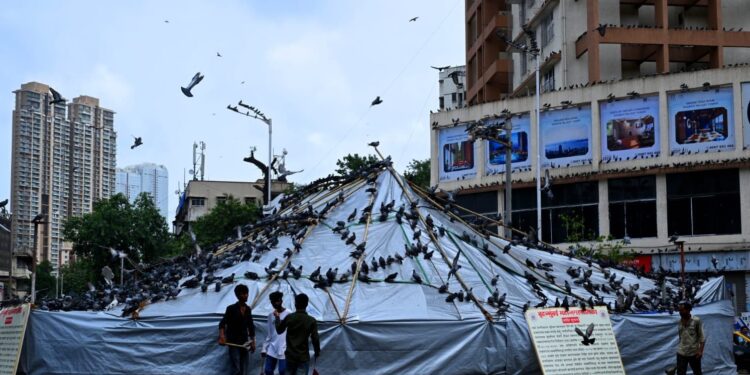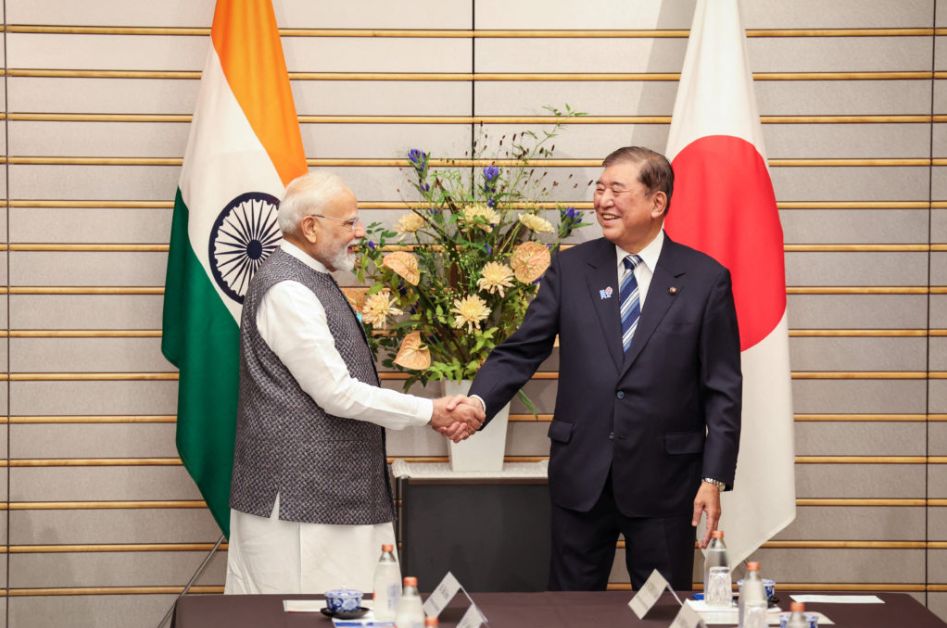 Image Source: Odisha Bytes
Image Source: Odisha Bytes
What began as a public health directive has spiraled into a full-blown political and cultural controversy in Mumbai. The city’s iconic pigeon feeding spots—known as kabutarkhanas—have become the unlikely epicenter of protests, court orders, and political maneuvering, as the Brihanmumbai Municipal Corporation (BMC) enforces a Bombay High Court ban on public pigeon feeding.
The flashpoint? Dadar Kabutarkhana, a Grade II heritage site near a Jain temple, where members of the Jain and Gujarati communities clashed with civic authorities after tarpaulin sheets were placed to block access. The protest, which included tearing down barriers and feeding pigeons in defiance of the ban, has triggered a storm of reactions from politicians, activists, and citizens alike.
The Court’s Verdict: Public Nuisance and Health Hazard
On July 30, 2025, the Bombay High Court ruled that feeding pigeons in public areas posed serious health risks and amounted to public nuisance. The court cited rising complaints of respiratory illnesses linked to pigeon droppings, environmental degradation, and sanitation concerns in densely populated areas.
The BMC was directed to take strict action, including:
-
Filing FIRs against violators
-
Installing CCTV cameras at kabutarkhanas
-
Covering feeding spots to prevent bird congregation
-
Ensuring pigeons “naturally survive like other birds”
Between July 13 and August 3, the BMC fined 142 individuals, including 51 at Dadar alone, collecting ₹68,700 in penalties.
Culture vs. Cleanliness: The Religious Dimension
For many in the Jain community, feeding pigeons is a sacred act of compassion and non-violence. Kabutarkhanas are not just feeding spots—they are spiritual spaces. The abrupt enforcement of the ban was seen as an attack on religious practice, prompting protests and emotional appeals.
On August 6 and 7, demonstrators dismantled the BMC’s tarpaulin covers and resumed feeding, claiming the birds were starving. Police intervened, leading to scuffles and detentions.
Political Fallout: Vote Banks and Flip-Flops
The controversy has taken on a political hue ahead of Mumbai’s municipal elections. Maharashtra Chief Minister Devendra Fadnavis initially backed the enforcement but later called for “controlled feeding” under civic supervision, citing humanitarian concerns.
-
His change in stance drew criticism from opposition parties:
-
MNS leader Bala Nandgaonkar urged the CM to balance public health with sentiment
-
NCP spokesperson Clyde Crasto questioned the legality of “controlled feeding” against court orders
-
Shiv Sena (UBT) MLA Aaditya Thackeray accused the BJP of exploiting Jain emotions for electoral gain
Minister Mangal Prabhat Lodha, after visiting Dadar Kabutarkhana, condemned the protests and called for legal action against agitators. He also suggested building aviaries and conducting health studies to find a middle ground.
Health vs. Heritage: What’s at Stake?
Scientific studies cited by the court link pigeon droppings to respiratory diseases like hypersensitivity pneumonitis and cryptococcosis. The acidic waste also corrodes heritage structures, increasing maintenance costs.
The BMC has proposed:
-
Building municipal bird houses
-
Regulating feeding schedules
-
Conducting health impact assessments
-
Creating awareness campaigns
However, community groups argue that the sudden crackdown lacks compassion and cultural sensitivity.
What’s Next?
The Bombay High Court is set to hear a writ petition filed by animal rights activists and trustees of the Dadar Kabutarkhana Trust. The court has maintained its interim order not to demolish the heritage site, and the BMC awaits further instructions before escalating enforcement.
As Mumbai grapples with this unusual intersection of faith, health, and politics, the kabutarkhana controversy may well become a litmus test for how urban India balances tradition with modern governance.
Sources: Business Standard, Mid-Day, Mathrubhumi, MSN, The Logical Indian
Advertisement
Advertisement





